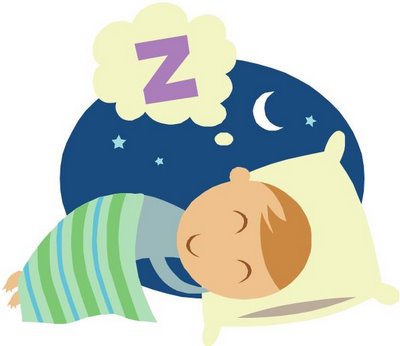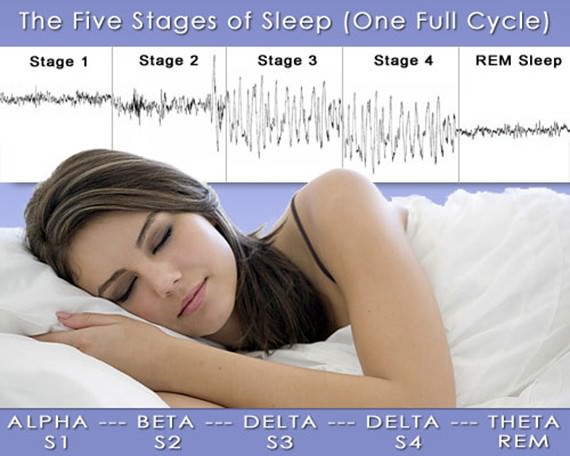Dreaming and the Brain
When we sleep, we go through five sleep stages. The first stage is a very light sleep from which it is easy to wake up. The second stage moves into a slightly deeper sleep, and stages three and four represent our deepest sleep. Our brain activity throughout these stages is gradually slowing down so that by deep sleep, we experience nothing but delta brain waves -- the slowest brain waves (see "Brain Waves" sidebar). About 90 minutes after we go to sleep and after the fourth sleep stage, we begin REM sleep.
Rapid eye movement (REM) was discovered in 1953 by University of Chicago researchers Eugene Aserinsky, a graduate student in physiology, and Nathaniel Kleitman, Ph.D., chair of physiology. REM sleep is primarily characterized by movements of the eyes and is the fifth stage of sleep.
During REM sleep, several physiological changes also take place. The heart rate and breathingquickens, the blood pressure rises, we can't regulate our body temperature as well and our brain activity increases to the same level (alpha) as when we are awake, or even higher. The rest of the body, however, is essentially paralyzed until we leave REM sleep. This paralysis is caused by the release of glycine, an amino acid, from the brain stem onto the motoneurons (neurons that conduct impulses outward from the brain or spinal cord). Because REM sleep is the sleep stage at which most dreaming takes place, this paralysis could be nature's way of making sure we don't act out our dreams. Otherwise, if you're sleeping next to someone who is dreaming about playing kickball, you might get kicked repeatedly while you sleep.
The four stages outside of REM sleep are called non-REM sleep (NREM). Although most dreams do take place during REM sleep, more recent research has shown that dreams can occur during any of the sleep stages. Tore A. Nielsen, Ph.D., of the Dream and Nightmare Laboratory in Montreal, refers to this as "covert REM sleep" making an appearance during NREM sleep. Most NREM dreams, however, don't have the intensity of REM dreams.
Throughout the night, we go through these five stages several times. Each subsequent cycle, however, includes more REM sleep and less deep sleep (stage three and four). By morning, we're having almost all stage one, two and five (REM) sleep.
Let's look at what happens if you don't get any REM sleep.








